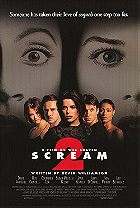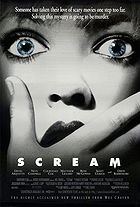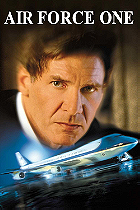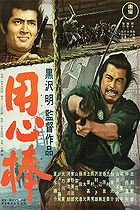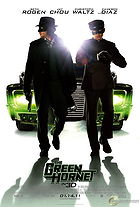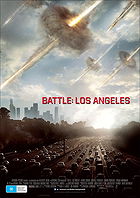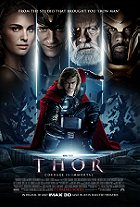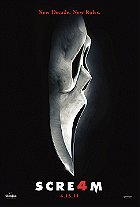Released in 1996 and 1997, Scream and Scream 2 remain notable for their savvy satirisation of horror clichés and unnecessary Hollywood sequels by introducing a fresh postmodernist perspective. Veteran horror director Wes Craven and screenwriter Kevin Williamson successfully revitalised slashers with the first two Scream films, showing that the subgenre still had plenty of life (death?) left in it. They say "third time's a charm," but that is not the case with 2000's Scream 3, as this goofy third instalment neglects the wily cleverness and witty self-awareness that characterised its predecessors. To put it mildly, Scream 3 is the type of unremarkable scary movie that Scream and Scream 2 gleefully ridiculed. With Ehren Kruger serving as screenwriter instead of Kevin Williamson, Scream 3 has its moments thanks to the reliable cast and Craven's direction, but it ultimately comes up short in meaty laughs, frightening scares, and nail-biting tension.

Several years after the events of Scream 2, Sidney Prescott (Neve Campbell) now lives in a secluded house in the woods of rural California, working from her home as a crisis hotline counsellor under a false name. After the brutal murders of Cotton Weary (Liev Schreiber) and his girlfriend (Kelly Rutherford) in Hollywood, Gale Weathers (Courteney Cox) travels to Tinseltown, where production is taking place for Stab 3: Return to Woodsboro, and Dewey Riley (David Arquette) is working as an on-set advisor. Another Ghostface killer emerges and begins targeting Stab 3's cast members while working to uncover Sidney's secret location, with Detective Mark Kincaid (Patrick Dempsey) working to investigate the murders. The killer hopes to lure Sidney out of seclusion by taunting her over the phone and leaving photos of her deceased mother at every crime scene.
Due to his commitments to other film projects, Kevin Williamson was not available to write Scream 3, and new screenwriter Ehren Kruger (Arlington Road) ignored Williamson's existing treatment for the sequel. Williamson's scripts for the previous Scream movies provided thrilling set pieces while competently juggling satiric and dramatic tones, ensuring the laughs did not undermine the story's stakes. Unfortunately, Scream 3 comes up short in these areas, neglecting the ironic dialogue, genre satirisation and clever references to other motion pictures. There are occasional laughs, but the gags are goofy instead of self-aware, making the film feel sillier than its predecessors. Furthermore, the murderous set pieces are frequently rote and predictable, the reveal of the killer lacks impact, and the finale drags on too long, ultimately losing steam. Additionally, the story's revelations feel forced, and it is debatable whether or not the logic of the narrative holds together in hindsight with the killer's identity in mind. Indeed, in the years since Scream 3's release, the ending has been subject to debate, dissection and discussion amongst Scream fans online. There were last-minute changes to the ending; crucially, this included removing the reveal of the story's second Ghostface killer despite the film still containing several scenes that point to the character in question being one of the killers.

Craven's execution of some key set pieces gives Scream 3 occasional moments of brilliance, including a chase through a replica of the house from the original Scream. Craven personally paid to construct these sets as he wanted to revisit the original film, and the resulting nostalgia is undeniably special. However, Craven's heart was clearly not in it this time, as he only agreed to direct the sequel to obtain the green light for his (forgotten) 1999 feature Music from the Heart. Additionally, in the aftermath of the Columbine High School massacre, the studio demanded an increased emphasis on comedy while scaling back the violence, to the point that executives wanted a completely bloodless sequel, but Craven thankfully pushed back. Nevertheless, due to the studio interference, Scream 3 is the tamest Scream movie to date, diluting the visceral impact of the kill scenes. Another issue is that this third Scream picture falls victim to countless slasher clichés and fails to do anything interesting with them. For instance, the killer is indestructible, invincible, fast, strong, and skilled with all manner of weapons...until they confront the heroine during the climax, at which time they become utterly useless, unable to punch, run, or aim a knife in the right direction. Additionally, if the characters wind up in an old house, it must contain secret passages and hidden rooms where people become trapped. And if the killer stalks a group of characters, they must split up and go in separate directions, ignoring that there is safety in numbers. The previous Scream films added a satiric edge to well-worn clichés, but Scream 3 plays these moments straight and unironically, making this sequel feel as flavourless as the motion pictures its predecessors mocked.
Despite Scream 3's shortcomings, the conceptual ideas behind the story are mostly solid, and there are some fun scenes. In one amusing moment, one of Stab 3's actresses (played by Jenny McCarthy) bemoans that she is playing a 21-year-old despite being 35, skewering one of Hollywood's most frustrating tropes. She also cries out in frustration about rewrites, reflecting Scream 3's troubled production and frequent rewrites. Detective Kincaid even mentions three scripts existing for Stab 3 to avoid internet leaks, a reference to Scream 2's online leaks. But the film's best scene is a beyond-the-grave video lecture by film geek Randy (Jamie Kennedy), who informs the characters about the "rules of the trilogy," giving Scream 3 its only insightful satire. For instance, he explains that the killer in the third film is extremely difficult to kill, the trilogy's final part brings back past sins, and no character is safe, no matter how major. (Although he fails to mention that the third part of a trilogy is usually the worst.) The fact that Randy's video lecture constitutes the best, wittiest, and most energetic scene in the movie further proves that killing Randy was an egregious miscalculation. Indeed, there was severe fan backlash about his death (which the script slyly references at one stage), and the creative team considered retconning Scream 2 by having Randy survive his injuries.

Campbell's commitments to filming the movie Drowning Mona limited her involvement in Scream 3, forcing Craven and Kruger to reduce her role. Consequently, Dewey and Gale are the new protagonists here (with David Arquette receiving top billing), while Sidney adopts a peripheral role and feels more like an arbitrary afterthought. Although Sidney has a bearing on the story and influences the killer's motivation, she does not achieve much in the film. However, Campbell's performance remains incredibly strong, showing genuine character development since playing a teenager in the original movie. Meanwhile, David Arquette and Courteney Cox both submit terrific performances, with Arquette remaining effortlessly charming and lovable while Cox is fiery and engaging. However, perhaps the biggest casting highlight is Parker Posey as a vapid, ditzy actress named Jennifer, who plays the role of Gale Weathers in Stab 3 and takes pride in playing the character even better than Gale herself. It is fun to watch the banter between Cox and Posey. Other well-known actors fill out the ensemble, with Patrick Dempsey as Detective Kinkaid, Lance Henriksen as a film producer, and Emily Mortimer as one of the Stab 3 cast members. Another cute touch is the inclusion of Jason Mewes and Kevin Smith as Jay and Silent Bob, while Carrie Fisher and film director Roger Corman also make cameo appearances. Roger L. Jackson is also on hand as Ghostface's phone voice and continues to bring appreciable menace to these scenes.
With the Scream franchise still continuing nearly thirty years after the first movie, Scream 3 remains the franchise's weak link, with Craven himself even admitting that this instalment is more Scooby-Doo than Scream. At the very least, Scream 3 comes alive in fits and starts, and it remains mostly watchable, but it is not scary or particularly intense, and it lacks the wit and subversion that made Scream a modern classic. It's not awful and is still superior to any number of other brainless slashers, but it is far below the quality we expect from this series.
5.6/10
 Login
Login
 Home
Home 183 Lists
183 Lists 1670 Reviews
1670 Reviews Collections
Collections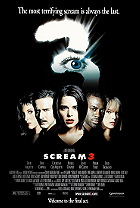
 0 comments,
0 comments, 